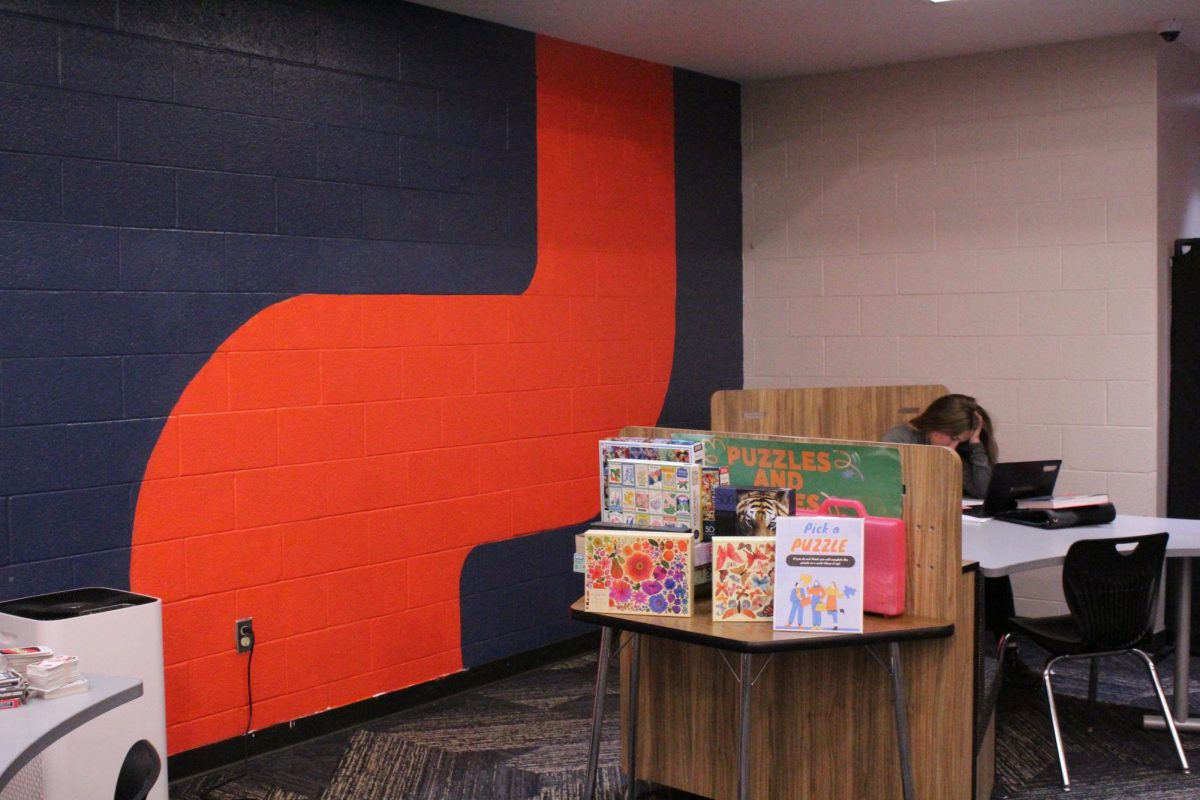When you think of Christmas, you probably don’t think of mint pancakes, but media specialist Debrielle Baldwin remembers Christmases when there was nothing but them.
“There were times near Christmas when we were so hungry that we made toothpaste pancakes. We would mix flour with toothpaste in order to have mint-flavored pancakes,” Baldwin said.
Like Baldwin’s childhood, there are still 37.9 million people who are living in poverty in America. She isn’t the only one who had to make something out of “nothing.”.
The holidays are meant to be enjoyable by relaxing and spending time with loved ones, however, this is not the case for most people. Instead, holidays are spent stressing over how they are going to provide their family with gifts and meals on top of every other expense they already have.
“Parents want their kids to have new things and they don’t have the resources to do it. They only have enough to make it through [the month],’’ Stockbridge Outreach director Gwen Reid said.
Because parents in poverty can’t afford what one would call a ‘typical Christmas’ filled with gifts and presents, their children can grow up feeling left out from the abundance of gifts that other children are more fortunate to have.
“As I get older and I have a job with money, I have to stress where I am putting my money and organizing it for each friend,” senior Isabella Hernandez said.
Many students get stressed out for various reasons during the holidays, one of them being the high expectations of gift-giving. As stated by Becoming Minimalist, 16 billion dollars are spent on unwanted Christmas gifts when that money could have been given to those less unfortunate such as the 37.9 million Americans still in poverty.
“It can be stressful because you have to get everyone a nice gift because that’s what you are expected to do,” senior Clarissa Hill said. “I get stressed about the money I am spending because I don’t want to waste it, so I keep a certain price range in mind.”
US History teacher Corey Baird is one of many who recognize the hardships on families during the holiday season as well as the social expectations that come with it.
“So much of Christmas is wrapped up in materialism in America. Parents, or whoever it is, get stressed out because they are thinking, ‘How am I going to get stuff for the kids for Christmas?’,” Baird said.
Like Baird, junior Ethan Bradley has noticed the toll that financial difficulties take on families.
“Holidays consisted of my family doing the best they could with the circumstances they were given while trying to make us have a special time,” Bradley said. “This just made me aware of the stresses that people have to go through to try to provide a good stable holiday for their kids.”
However difficult poverty can get during these months, poverty isn’t just a problem during Christmas; many experience poverty throughout the year.
Faith and Action, an organization in Chelsea, helps families in poverty all year round.
“I think it’s easy for people to forget that we help people every month of the year and not just through the holiday season,” Faith and Action executive director Sarah Shugart said.
While hundreds of people help Faith and Action during the holiday season, a helping hand is also important year-round. Shugart explains that their organization aids 200 families a year with only 60 families volunteering. That leaves 180 families without the help they need throughout the whole year. Because of this, more help is always needed.
“I would like young people to have empathy for the people in need and to understand that circumstances throughout life change dramatically and quickly,” Shugart said, “So if you are in a position to help them then it’s a good time to do it, because you never know what tomorrow will bring.”








